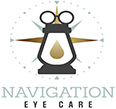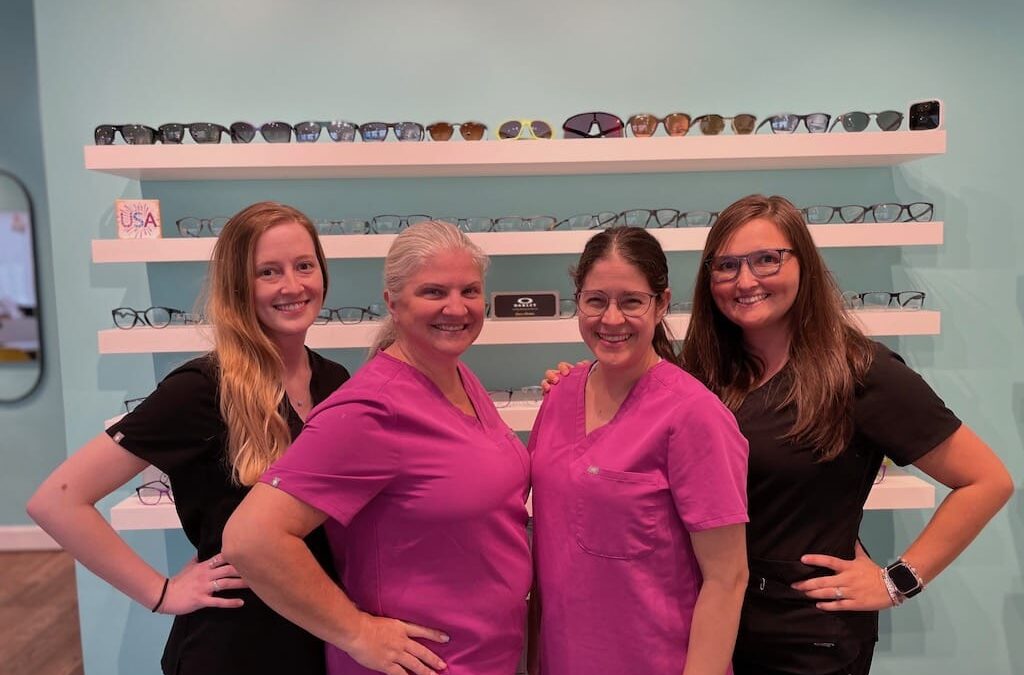Visual Focus: Navigating the Link Between ADHD and Vision Issues
In a world filled with constant stimuli, maintaining focus is a challenge that many individuals face. For those with Attention Deficit Hyperactivity Disorder (ADHD), this struggle can be even more pronounced. While ADHD is primarily associated with difficulties in attention and hyperactivity, emerging research suggests a significant connection between ADHD and certain vision issues. This article explores this intriguing link and how Navigation Eye Care’s own optometrist Chesapeake VA are playing a crucial role in addressing it.
Unraveling the Connection
ADHD is often characterized by inattention, impulsivity, and hyperactivity. While these symptoms primarily stem from neurochemical factors, recent studies have started to uncover a correlation between ADHD and visual abnormalities. Visual processing deficits, difficulties in eye teaming, and vergence instability are some of the vision-related issues that seem to overlap with ADHD symptoms.
Seeing Isn’t Always Believing: Visual Processing Deficits
For individuals with ADHD, processing visual information efficiently can be challenging. Visual processing involves the brain’s ability to make sense of what the eyes perceive. Those with ADHD might struggle with filtering out irrelevant details, making it difficult to focus on the essential information. This can lead to a sense of sensory overload, contributing to the inattention characteristic of ADHD.
Focus and Convergence: Eye Teaming Challenges
Eye teaming, or the ability of both eyes to work together as a cohesive unit, is crucial for reading, comprehension, and maintaining attention. When the eyes struggle to converge on a specific point, it can lead to visual discomfort, fatigue, and reduced attention span. Individuals with ADHD might experience these challenges more frequently, exacerbating their existing difficulties in maintaining focus.
The Role of Optometrists
Recognizing the connection between ADHD and vision issues, Navigation Eye Care’s qualified optometrist Chesapeake VA takes a holistic approach to care. She understands the visual problems that can compound the challenges faced by individuals with ADHD, impacting their learning, work, and overall quality of life.
Comprehensive Vision Assessments: Beyond 20/20
Standard eye exams often assess visual acuity (sharpness of vision) but might overlook the intricate visual skills necessary for focus and attention. Navigation Eye Care’s Optometrist Chesapeake VA specializes in vision therapy and can conduct comprehensive assessments that delve into areas such as eye teaming, tracking, and visual processing. These assessments provide a more nuanced understanding of an individual’s visual capabilities and limitations.
Vision Therapy: Enhancing Focus
Vision therapy, a tailored program of exercises and activities, aims to improve visual skills and alleviate associated difficulties. For those with ADHD, vision therapy can be a game-changer. By addressing specific visual challenges, individuals can experience improved focus, reduced eyestrain, and enhanced attention span. This, in turn, can complement other strategies used to manage ADHD symptoms.
A New Perspective
The evolving understanding of the connection between ADHD and vision issues offers a new perspective on managing the condition. By addressing visual challenges, individuals with ADHD can potentially experience a more comfortable and focused daily life.
The journey of managing ADHD involves considering various facets, including the role of vision. Optometrists in Chesapeake, VA, specializing in comprehensive vision assessments and vision therapy, are at the forefront of this integrated approach. As we continue to unravel the intricate relationship between ADHD and vision, individuals can find hope in the potential for enhanced focus and improved quality of life.
Beyond Eyesight: Unveiling the Science Behind Vision Therapy’s Impact
Vision, often hailed as the most dominant of our senses, goes beyond mere eyesight. It’s a dynamic interplay between the eyes and the brain, shaping how we perceive and interact with the world. While traditional eye care focuses on clarity of vision, there’s a realm of visual function that extends far deeper. We will explore the science behind the transformative impact of vision therapy, shedding light on how Navigation Eye Care’s optometrist Chesapeake VA is rewriting the narrative of visual health.
The Complex Dance of Vision
Seeing is not a passive process; it’s an intricate dance between the eyes and the brain. As light enters our eyes, it’s transformed into neural signals that the brain decodes into the vibrant tapestry of our visual world. This intricate dance involves various visual skills, from the alignment of the eyes to the brain’s interpretation of these signals.
The Hidden Obstacles
For some, this dance isn’t as seamless as it should be. Visual challenges can emerge, affecting everything from reading to spatial awareness. These challenges, often unrelated to traditional eyesight measures, can impact daily life, academic performance, and overall well-being.
A New Perspective on Vision Therapy
Vision therapy is an evolving field that recognizes the intricate nature of vision. It’s not about lenses or correcting refractive errors; it’s about enhancing the dynamic coordination between the eyes and the brain. This therapy involves a structured and personalized series of activities and exercises that target specific visual skills.
Rewiring the Brain: Neuroplasticity in Action
One of the most fascinating aspects of vision therapy is its foundation in neuroplasticity—the brain’s remarkable ability to reorganize itself based on experiences and learning. Through targeted exercises, vision therapy encourages the brain to form new neural connections, optimizing visual function.
A Holistic Approach
The impact of vision therapy extends beyond visual comfort. Improved eye teaming, focusing, and tracking skills don’t just result in clearer vision; they can also enhance reading comprehension, academic performance, and even sports performance.
A New Understanding of Vision
The scientific basis of vision therapy rests on the brain’s plasticity and its role in shaping visual function. It’s a departure from the traditional notion that visual acuity is the sole measure of visual health. Navigation Eye Care’s Optometrist Chesapeake VA, is well-versed in this science, is at the forefront of this shift, recognizing that true visual health involves not just clarity but also the harmonious orchestration of visual skills.
Personalized Progress
Vision therapy is not a quick fix; it’s a journey. Progress is often gradual, as the brain adapts and refines its neural pathways. Each individual’s experience is unique, and optometrists tailor therapy programs to address specific challenges.
The Vision Beyond
The science behind vision therapy reveals the astounding potential of our visual system. It’s a testament to the brain’s capacity to evolve, adapt, and optimize. As we move beyond conventional notions of eyesight, we uncover a realm where vision is a dynamic, trainable skill. With the guidance of Navigation Eye Care’s skilled optometrist Chesapeake VA and team, individuals can embark on a journey that leads to improved visual function, enhanced quality of life, and a deeper understanding of the intricate dance between our eyes and our brains.

